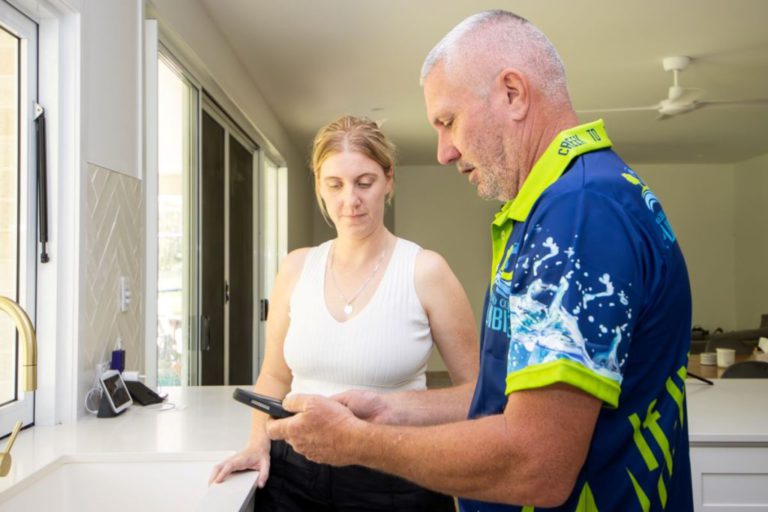When it comes to selecting the perfect hot water system for your home, it’s essential to undertake a comprehensive assessment of numerous elements that go beyond mere functionality. In the contemporary market, options are designed with a strong emphasis on energy efficiency, significant long-term savings, and their ability to integrate with cutting-edge technologies, such as solar power and smart home setups. For homeowners in Queensland, the decision-making process often revolves around two particularly favoured options: solar hot water systems and heat pumps. Gaining a thorough insight into the benefits and features of each system can empower you to make a well-informed decision that meets your household’s specific needs.
Both alternatives provide energy-efficient solutions when compared to traditional electric storage or gas systems. Yet, they function differently and cater to varied household requirements, climatic conditions, and financial limitations. This article will explore in-depth the distinctive characteristics of each system, emphasising the growing inclination towards heat pump systems among homeowners who are seeking optimal efficiency and cost-effectiveness.

Exploring the Functionality of Solar Hot Water and Heat Pump Systems
Understanding Solar Hot Water Systems
Solar hot water systems utilise specially engineered collectors installed on rooftops to capture solar energy. This harnessed solar energy is then used to heat water stored in a dedicated tank, providing an eco-friendly solution for your hot water needs. Most solar systems are equipped with a backup heating system, either electric or gas, which ensures a steady supply of hot water even during cloudy days or peak demand periods, thus guaranteeing comfort and convenience for your household.
Understanding Heat Pump Hot Water Systems
In contrast to solar hot water systems, heat pumps operate independently of direct sunlight. They extract warmth from the surrounding air using a refrigeration cycle and transfer this heat to water stored in a tank. This process resembles the operation of an air conditioning unit but in reverse. Heat pump systems do not require any rooftop components, thereby simplifying their installation and making them suitable for a wider range of homes.
Evaluating the Efficiency and Performance of Different Hot Water Systems
| Performance Factor | Solar Hot Water System | Heat Pump System |
|---|---|---|
| Requires direct sunlight for operation | ✓ | ✗ |
| Functions effectively in shaded environments | ✗ | ✓ |
| Available for use at night | ✗ | ✓ |
| Needs roof space for installation | ✓ | ✗ |
| Stable performance in winter conditions | ✗ | ✓ (in QLD climates) |
| Eligible for STCs and rebates | ✓ | ✓ |
| Compatible with solar photovoltaic systems | ✗ (standalone) | ✓ |
Note: In the warm climate of Queensland, heat pumps typically maintain high efficiency year-round, making them a dependable and practical option for homeowners.
Essential Factors for the Installation and Maintenance of Hot Water Systems
The installation of solar hot water systems requires careful placement of collectors on your roof, which can complicate the installation process, especially in older properties or those with limited roof access. Variables such as shading, roof orientation, and pitch can significantly impact performance, making thorough planning essential. Additionally, the arrangement of the tank and plumbing can restrict configuration options, resulting in a more intricate installation experience compared to alternative systems.
Conversely, heat pumps are typically installed at ground level and are available in both integrated and split systems, taking up a footprint similar to that of conventional electric tanks. They do not require any rooftop components, which simplifies the installation process and makes it more accessible for homeowners. Furthermore, maintenance for heat pumps tends to be less complicated, as they are less exposed to UV rays and extreme weather conditions, leading to decreased frequency and costs associated with upkeep.
Optimising Your Savings by Choosing the Right Hot Water System
Both solar hot water systems and heat pumps significantly contribute to lowering energy expenses. However, heat pumps often result in greater savings for households that:
- Experience limited sunlight throughout the day and require a reliable hot water source
- Utilise hot water during early morning or late evening hours when energy prices are generally higher
- Already possess rooftop solar PV systems and want to enhance their energy self-consumption
- Prefer to avoid reliance on roof structures or do not wish to penetrate roofing materials
Given that heat pumps operate using electricity, they can be programmed to run during peak solar generation hours. This flexibility makes them an ideal companion to existing solar panel systems. Instead of exporting excess energy at a lower feed-in tariff, homeowners can efficiently use their solar energy to heat water, maximising both cost-effectiveness and energy efficiency.
Understanding Upfront Costs and Available Rebates for Hot Water Systems
Both solar hot water systems and heat pumps are eligible for Small-scale Technology Certificates (STCs), which can significantly lower the purchase price, making these systems more affordable for homeowners. The availability of STCs is contingent on various factors, including geographical location, system size, and efficiency ratings. In addition, heat pump systems may qualify for specific rebates in Queensland under the Energy Efficient Communities Program, which vary based on household specifics and the type of installation.
To effectively navigate these rebate options, it’s advisable to consult a qualified installer like Creek to Coast Plumbing. They can offer expert advice on eligible systems and manage the rebate application process, ensuring that you take advantage of all possible savings as part of your installation service.
Determining the Most Appropriate Hot Water System for Queensland Homes
In the coastal regions of Queensland, including the Sunshine Coast and Moreton Bay, heat pumps often outperform solar hot water systems due to their consistent performance, easier installation, and compatibility with solar technologies. They are especially advantageous for homes that experience shading or have semi-sunny conditions, and are highly effective in residences equipped with battery storage or smart controllers that optimise energy consumption.

Identifying the Best Options for Hot Water Systems
While solar hot water systems remain relevant, especially in homes with unshaded, north-facing roofs that have high daily hot water needs, heat pump systems offer a more adaptable and comprehensive solution for many homeowners across Queensland. They provide reliable performance, straightforward installation processes, and seamless integration with existing solar PV systems, making them a valuable investment for energy-conscious homeowners.
If you are contemplating an upgrade, we encourage you to visit our Heat Pump Hot Water Systems Installation Page for additional insights or to request a customised quote tailored to your unique requirements.
The Article: Heat Pumps vs Solar Hot Water: Which is Superior? first appeared on https://writebuff.com
The Article Heat Pumps vs. Solar Hot Water: A Comparison of Efficiency Was Found On https://limitsofstrategy.com






